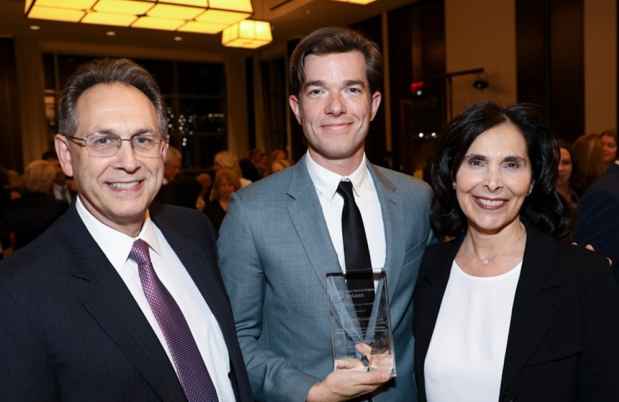One researcher is looking at how administering xenon gas may minimize injury to a traumatized brain. Another is studying how childhood sexual abuse affects brain function and increases the risk of re-victimization. A third is trying to understand the connection between early tobacco use and later vulnerability to drug abuse. Each study is likely to make important contributions to the field of psychiatry in the near-term, yet none of them would likely be funded through traditional channels.
That’s where donor Ann O’Keefe from a local charitable foundation comes in. “These young scientists are caught in that basic catch 22: you can’t get a job without experience, or in their case, you can’t attract funding without a track record of scientific discovery,” said O’Keefe. “There have been many major discoveries that almost didn’t happen, were byproducts or accidents, or were simply started with a question that no one had thought of before. Here was an opportunity to promote fresh ideas and see where young researchers would focus their inquiry if given a chance.”

Thanks to O’Keefe’s generosity, McLean has awarded O’Keefe Family Junior Investigator Awards for Excellence in Imaging Research to six young scientists, all of whom use imaging as their chief investigative tool
“The O’Keefe Awards are providing critical seed money that allows our junior investigators to explore ideas that are all their own,” said Scott E. Lukas, PhD, director of the McLean Imaging Center and a co-advisor to the investigators. “And the gifts go well beyond the dollar amounts provided, because they’re likely to act as a springboard to much bigger grants.” For example, the researcher studying tobacco use has already leveraged her award to secure a $600,000 grant from the National Institute on Drug Abuse. The other scientists all are at various stages of applying for federal grants.
According to Diego A. Pizzagalli, PhD, director of the McLean Imaging Center and mentor to O’Keefe grantee Pia Pechtel, PhD, research on mental illnesses is becoming increasingly multidisciplinary, making awards like this a valuable platform for talented young investigators to launch bold, interdisciplinary projects. “We envision that such intellectual freedom and the associated mentorship opportunities across fields will pay large dividends for our awardees,” said Pizzagalli, who also serves as director of the Center for Depression, Anxiety and Stress Research.
The Funder’s Thinking
For O’Keefe, who has a background in mental health research, the appeal of nurturing promising young scientists was just one of many reasons she wanted to work with McLean. “I also like that the hospital is local—I can go there, meet the neuroscientists, and learn about their work—but at the same time McLean is a world-renowned institution with global impact,” she said. She was also attracted to McLean’s interdisciplinary approach to research and treatment; its work to decrease the stigma of mental illness; and its Imaging Center’s quest to understand the neural underpinnings of psychiatric disorders and develop targeted interventions that bring quicker relief to patients.
“What better response can we have to human suffering than to participate in the solution?” said O’Keefe. “This is the opportunity at McLean.
The O’Keefe fellows:
Julia Cohen-Gilbert, PhD
Influence of Binge Drinking on the Neural Correlates of Inhibitory Control during Emotional Distraction in Young Adults
Yasmin Mashhoon, PhD
Effects of Early Onset Cigarette Smoking on Brain Chemistry and Response Inhibition
Edward Meloni, PhD
Does Xenon Have a Neuroprotective Effect in Traumatic Brain Injury?
Lisa Nickerson, PhD
Comparing Multi-Modal Neuroimaging Strategies in Drug Abuse and Psychiatric Research
Pia Pechtel, PhD
Exploring Neural Substrates of Emotion Dysregulation and High-Risk Behavior in Adolescents with a History of Childhood Sexual Abuse
Matthew Puhl, PhD
Examining the Relationship Between Schizophrenia and Alcohol Abuse
Media Requests
Journalist or member of the media? We are available 24/7 for media requests.



